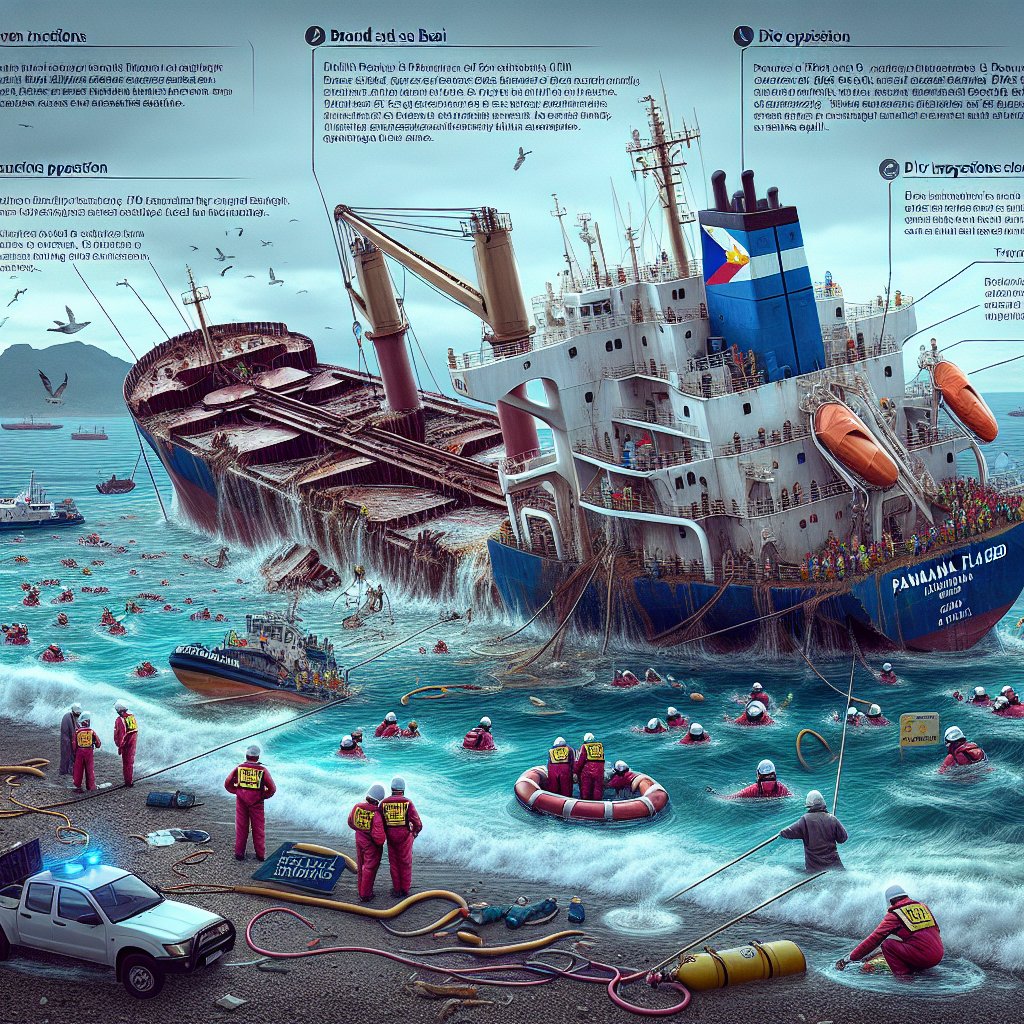Image created by AI
Cargo Ship Disaster off South Africa's West Coast Leads to Major Oil Spill
In an environmental setback off the pristine shores of South Africa's West Coast, a Panama-flagged cargo ship has caused considerable ecological concern after fracturing into four parts, which resulted in an oil spill near Brand se Baai. The vessel, which ran aground on a fateful evening in July, has seen its condition worsen despite ongoing salvage efforts orchestrated by the South African Maritime Safety Authority (SAMSA).
The cargo ship's ordeal began earlier this month when it became stranded just south of Brand se Baai, near Duiwegat. As conditions around the grounded vessel deteriorated, a challenging rescue operation was launched, culminating with the safe evacuation of all 18 Filipino crew members who are now back in their home country.
SAMSA, immediately after addressing the urgent human safety concerns, entered the emergency phase of the operation. Initial salvage efforts focused on recovering flotsam, securing debris from the ship, and sealing its fuel tanks to stave off environmental disaster. Subsequently, Smit International, a well-regarded salvage firm, was appointed to steer the next phase of the recovery process.
Notably, on July 23, dive inspections revealed alarming evidence of the cargo ship's compromised structural integrity, prompting rapid measures to mitigate further damage. Plans were set in motion to install a specialized monitoring system to incessantly track the vessel's precarious state.
Nevertheless, the tumult of stormy weather conditions has recurrently impeded the salvage operation, plaguing the process with delays and setbacks. The fragmentation of the ship's hull sounded another alarm as SAMSA confirmed the vessel's breaking into parts, raising the specter of a heightened ecological threat to the marine life and waters of the West Coast.
SABC News reported on the current efforts to contain the spill, emphasizing the grim reality of the situation. In response, SAMSA spokesperson Tebogo Ramatjie has noted the enlistment of additional resources and manpower to confront the emergency. A contingent of 125 members from the local community has been deployed to the front lines of the clean-up operation, signaling a combined effort to tackle the environmental havoc unleashed by the accident.
The authorities remain vigilant, focusing their operations on containment and ensuring that the oil spill does not exacerbate further. With environmental and maritime safety at the forefront, this incident once again brings to light the delicate balance between marine commerce and the preservation of ecologically sensitive seascapes.










